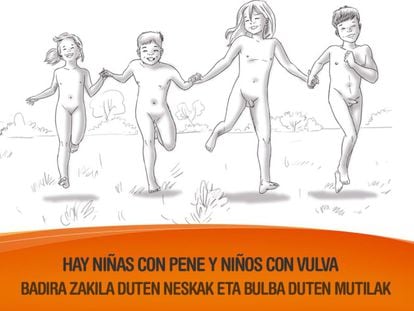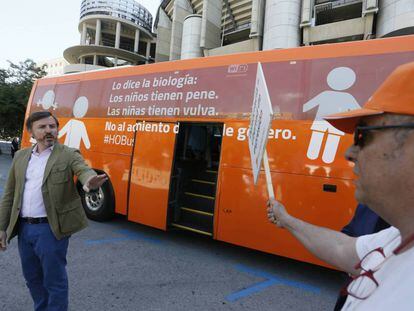More than 2,000 Spaniards have changed sex on ID cards since 2007
The LGBT collective says more transsexuals would have done so if not for associated red tape
Sex changes filed at Spain’s Civil Registry have tripled in the last seven years, according to data from the Justice Ministry. The number of people applying to amend their gender on their Spanish ID document – known as the DNI – went from 132 in 2009 to 436 in 2016.

The right to modify one’s gender on the Civil Registry became possible with the Gender Identity law of 2007, but Mané Fernández, spokesman on transgender issues with Spain’s National Federation for Lesbians, Gays, Transsexuals and Bisexuals (FELGTB), says that more transsexuals would benefit if the law were less restrictive.
Current legislation requires that the applicant has a gender dysphoria diagnosis, has undergone hormonal treatment for at least two years, has Spanish nationality and is a consenting adult before the change can be registered. But the LGTB collective believes these requirements are unnecessary.
Only 14 people requested a change to the ID card in 2007
“We don’t need a doctor or anyone else to say who we are,” says Fernández. “To be diagnosed with gender dysphoria is like saying you have a disease, which is why we are demanding self-determination for the individual. We don’t believe there is any transsexual who wouldn’t want to take this step, but these restrictions stop them from doing so.”
Since the 2007 law was passed, a total of 2,225 adults have changed their gender on Spain’s Civil Registry, an adjustment that previously involved going through the courts. More than half of the changes are by people who were originally men, and 53.3% of the changes are among 18- to 30-year-olds. People aged over 50 are the least likely to take the step – just 115 over-50s have done so since 2007, representing 5.1% of the total.
Last May, a left-wing parliamentary group consisting of Spanish political parties United Podemos, En Comú Podem and En Marea proposed a law aimed at definitive equality for the LGTB collective that suggested applicants need not be diagnosed by a psychologist, or have undergone therapy or treatment or surgery to be eligible to officially change their gender. “What we are proposing is the self-determination of the individual,” says Fernández.
The 2007 law does not apply to minors. Sources from the Justice Ministry explained that when it comes to a change of name, the general criteria accepted include an application for a neutral name that won’t lead to a confusion over sex, a diagnosis of gender identity disorder based on at least three medical reports, being aged 14 or over and having at least one favorable report from the Justice Ministry or the Civil Registry.
The Justice Ministry has seen 97 gender change cases registered among under 17-year-olds since 2007. Families of transgender children have often got around the law by applying for a simple name change as opposed to a change of gender, although some civil registrars are, according to the FELGTB spokesman, “more flexible when it comes to applying the law.” This was certainly the case in the Basque Country in 2016 when four-year-old Luken was able to register as Lucía, one of 30 minors whose application has been successful in Spain.
We don’t need a doctor or anyone to say who we are Mané Fernández, FELGTB spokesman on transgender issues
English version by Heather Galloway.












































